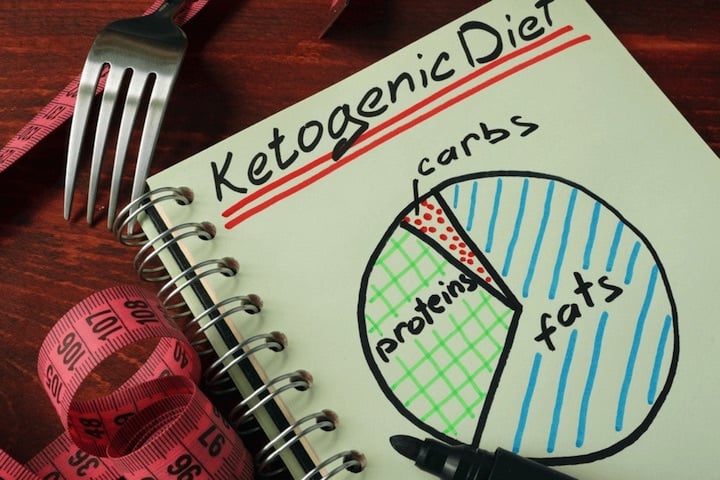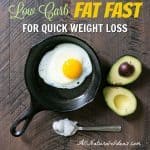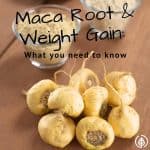If you’re considering moving to a ketogenic lifestyle, you’ll want to know how the keto diet works. Here’s the basic information you need to know to get started.

The keto diet has quickly become one of the most popular diets today. Those people once on the Paleo or Atkins diet are shifting to keto.
And it makes sense why. The keto diet can help you lose weight, boost your mental clarity, increase your mood, and regain your overall health.
But how does the keto diet actually work, and what should you be eating to ensure you’re getting the most from the diet?
So, in this article we’ll be covering how the keto diet works, the benefits of keto, what you eat, and how to best get started on a ketogenic lifestyle.
How does the Keto Diet work?
When following a keto diet, your body enters a metabolic state called ketosis. And once in ketosis, you start experiencing all the health benefits that so many people are talking about.
What is ketosis?
Usually our bodies rely on carbohydrates and sugars as their main source of fuel. But during ketosis, your body instead burns more fat for energy and relies less on carbs/sugars.
But how does ketosis force your body to burn fat?
When your body eats lots of carbohydrates, it converts those carbohydrates into glucose. Your body then uses glucose as its preferred fuel source. It doesn’t have a reason to tap into your fat reserves as a source of fuel since it always has glucose available.
But, a ketogenic lifestyle includes only foods that are low in carbohydrates. So when you limit the amount of carbohydrates you eat, your body has to find an alternative source of energy… fats.

How do you get into ketosis?
Simply follow a keto diet!
There are some tips for getting into ketosis faster that you may want to try as well.
Your main focus should be to consume under 25g of carbs per day. The rest of your daily calorie intake should come from lots of healthy fats and a moderate amount of protein. Don’t get too bogged down trying to figure out exact ratios.
If you’re interested, you can use this simple keto calculator to figure out your macro needs.
Once you change what you eat, you’ll then change your metabolism and your body will naturally enter ketosis.
How do you know if you’re in ketosis?
There are a few ways to test if you’re in ketosis. First, you can do a blood test. But this takes time and a meter for testing can be expensive. The upside to a blood test is it’s the most accurate for measuring ketone bodies.
Second, you can do a breath test which takes a real-time assessment of ketone bodies. However, finding an accurate breathalyzer may not be easy. Look for one with high ratings written by real users at trustworthy sites.
The third way to measure ketones in your body is urine testing. More or less, urine ketone strips measure your ketone levels within the last few hours. Although they aren’t the most accurate, these strips are generally the least expensive testing method.
What foods are allowed on a keto diet?
This is where a lot of people get confused when it comes to a ketogenic lifestyle. You’ll be eating very few carbohydrates (remember, less than 25g per day), and lots of healthy fats and a moderate amount of protein.
- Foods to EAT: seafood, meat, eggs, low-carb vegetables like leafy greens and cauliflower, olives, avocados, coconut oil, olive oil, high fat dairy like ghee and butter, nuts, seeds, and some low-carb fruits
- Foods to AVOID: all grains like wheat/corn/oats, legumes, processed vegetable oils, artificial sweeteners and colors, high carb vegetables like sweet potatoes, regular potatoes, and butternut squash, and sugary fruits like pineapples, grapes, and mangos.

How does a ketogenic lifestyle benefit your health?
Below you’ll find four main benefits of the keto diet (although there are many more).
1) Keto can help you lose weight according to many scientific studies.
Take a look at this this study, where researchers compared those eating a diet very similar to keto (low-carb and high-fat) with those eating a more conventional weight loss diet (very low in fat, calorie restricted, and unlimited carbs)
The low-carb dieters lost way more weight than those on a standard weight-loss diet!
2) Keto can reduce your risk of heart disease based on its plentiful physiological benefits.
There’s scientific evidence that the keto diet can help reduce your risk of heart disease because it could improve your cholesterol levels, lower high blood pressure, and minimize your triglyceride levels.
3) Keto can boost your energy according to anecdotes from many keto dieters.
Keto-dieters report feeling more energetic, clear-headed, and focused. They also no longer suffer from common mid-afternoon fatigue or deal with brain fog or forgetfulness throughout the day.
If you aren’t convinced, just take a look at some keto diet forums and reddit threads and you’ll see dozens of real-life examples.
4) Keto can help reduce overeating because it reduces your appetite by “tricking” your hunger hormones.
In one study, researchers followed a group of people on a diet similar to keto. Although the dieters were told that they could eat as much food as they wanted, the dieters still reduced their food intake without consciously trying to.
If you go to those keto diet forums or reddit threads that I mentioned in number 3, you’ll also see a bunch of stories about keto dieters feeling less hungry as a result of what they’re eating.

How should you start a keto diet?
If you’re just getting started with a ketogenic lifestyle, there are two main things that you should focus on:
1) Stock your pantry with nutrient-dense foods
Even though some foods are low-carb, that doesn’t meant that they’re good for you!
Avoid all diet sodas or other processed low-carb foods (especially energy bars).
Instead, focus on the foods listed in this Ketogenic Diet Food List for Weight Loss. They’re full of numerous vitamins, antioxidants, and minerals your body needs for optimal health.
Don’t get bogged down by counting calories – Lisa from All Natural Ideas explains that what’s more important is nutrient dense food, which I definitely agree with.
Action Step: Go through your pantry and fridge and get rid of all non-keto foods (I know it hurts… but it’ll prove your commitment!)
2) Pick a stress-free week to start your keto diet
The week that a huge project is due at work is probably not the best week to start keto.
Your body will need around a week to adjust to a keto diet. You might experience some keto flu symptoms and need time to get used to your life on keto.
So it’s important to have a light schedule and get lots of rest during this time.
Action step: Look at your calendar and find a good week (within the next couple of weeks) to start keto.
3) Your diet is just one part of creating a healthy lifestyle
Improving your health requires more than just changing your diet. Although it’s a great way to start, there’s much more you need to do!
You’ll also need to make sure you’re exercising frequently, getting enough sleep, managing your stress levels, and spending time with the people that you love and bring you joy.
Action step: Go to the gym or exercise outside at least once this week. Also, plan a date with a friend this week to go do something fun!

Conclusion
Moving to a ketogenic lifestyle can be a huge step on your journey to achieve long-term health.
Based on scientific evidence, it can make you feel better: improving everything from bloating to energy levels to food cravings to your mood. As well as helping you lose weight!
But remember that there’s more to a keto diet than just the food. Combine a keto diet with a healthy lifestyle – get out and exercise in the sun, laugh with your friends and family, reduce stress and try out meditation and mindfulness.
The keto diet isn’t meant to restrict your lifestyle. It’s meant to free you to feel great, look great, and live the life you want. Ready to start? Check out the rules of the keto diet.
Interested in the Keto Diet? Check out these other articles:
- Keto Flu – Why It Happens, Symptoms, and Relief
- Intermittent Fasting Keto Diet Benefits and Tips
- Best Keto Supplements for Weight Loss and More





